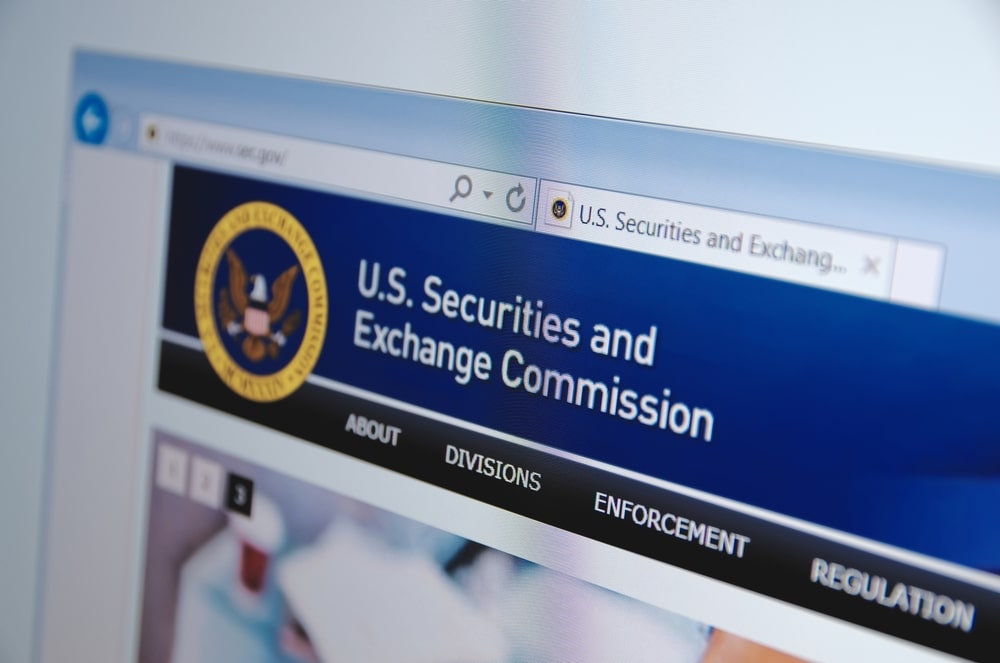
Gensler Condemns Noncompliance From Cryptocurrency Projects Ahead of Oversight Testimony
The Securities and Exchange Commission (SEC) chair, Gary Gensler, has illustrated tough sentiments on the widespread noncompliance in the digital assets landscape. The written testimony dated Tuesday, September 12, indicated the chair has hardly changed from the tough views despite the bipartisan criticism of SEC’s approach towards crypto.
The written remarks were released in his preparation to testify on Capitol Hill. He decries the presence of wide-ranging noncompliance with the federal securities laws, leaving the multiple challenges witnessed today inevitable. He considers the situation to replicate the 1920s, prompting the enactment of federal securities laws.
Gensler Stance on Crypto Regulation Draws Criticism
While Gensler is expected to address various topics before the Senate Banking Committee, the crypto industry is closely watching his comments. The written remarks are attracting criticism from crypto advocates, regretting the hurdles imposed by the US regulatory uncertainty.
Gensler’s stance on digital assets is consistent and portrayed in enforcements undertaken by the SEC. He reiterates his opposition to amending the federal securities laws in an effort to accommodate crypto since most crypto tokens satisfy the investment contract test.
The reference made by the SEC’s chair to investment contacts triggers the application of the Howey Test. It involves a four-pronged approach utilized by the SEC to ascertain if the offering constitutes a security as outlined in the 1934 Supreme Court ruling to address orange groves.
Gensler has in the past emphasized the Howey Test application to tokens, including Ethereum. He considers everything, including Ethereum, which ranks as the second largest token in market capitalization, as securities. As such, it implies all altcoins are securities.
A review of Gensler’s appearance before the House Oversight Committee shows that he deliberately failed to label Ethereum as a security or commodity. Although the evasive tactic culminated in a testy exchange with Representative Patrick McHenry, Gensler was adamant about specifying the classification.
Enforcement Actions Against Crypto Projects Impose Investment Challenge
The distinction on when the cryptocurrency tokens satisfy commodity or security influences the regulator with oversight duty. The matter leaves the SEC embroiled in blurred oversight duties with the Commodity Futures Trading Commission (CFTC). Representative Stephen Lynch would, in May, dismiss the existence of war in the two agencies by terming it an industry-fuelled narrative.
Crypto advocates consider that regulatory regimes that advance enforcement actions hardly assist investors and token issuers. The sentiment attracts support from both political sides.
Republic lawmakers drafted a letter in April lamenting the continued absence of clear rules. The letter challenges the SEC for the absence of a path that crypto trading firms would utilize in registering their projects with the SEC.
Representative Ritchie Torres would, in July, label the agency as the overzealous cop intending to ticket speeding drivers without informing them of the speed limit.
SEC Suffers Consecutive Loss in Court
Gensler’s approach towards the crypto projects has come under attack severally. Representative Torres cites the partial win realized by Ripple Labs in July to challenge the reassessment of the regulatory assault. The New York Judge Analisa Torres dismissed SEC’s allegation that XRP offered for retail sales are unregistered securities, unlike wholesale sales.
The SEC would suffer a loss in a prolonged lawsuit with Grayscale Investments, with the court directing it to reconsider the denial of the plaintiff’s bid to convert the $15.6 billion Bitcoin trust into a Bitcoin exchange-traded fund (ETF).
The written remarks show Gensler is yet to ditch the stance on cryptocurrencies. He emphasized that nothing unique exists within the crypto asset securities markets, suggesting investors and issuers deserve fewer safeguards in the securities laws.




